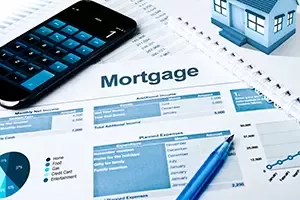Military & Veterans Life
How Military & Veterans Can Repair Their Credit Rating

If you are in credit trouble, you aren’t alone. There are so many military and veteran families and Americans in general who have had issues with their credit.
So, what are the things that impact your credit score?
- The length of your credit history
- If you’ve filed for Bankruptcy
- Payment history (this means making payments on time, which is vital)
- Having a variety in your credit history (credit cards, loans, etc.)
- If you have anything in collections
Repairing your credit is a process that takes time. It requires paying off debt and anything in collections, then showing you are a good credit risk for a solid length of time. Although much of your credit history will remain on your report for seven years or more, once you pay off collections, it will be removed within 30 days. This will add a significant bump to your score if this is impacting you.
Repairing your credit score is not an easy process. You may have to start with a secure credit card. With a secured credit card, you personally put up the money to secure it and the limit is usually between $500-$1000. The goal is to utilize it for purchases and pay it off every single month for up to a year. This will slowly bring your score up, demonstrating that you are responsible and pay your debts. If you are all in, you can do this. Just be prepared for the time it requires.
Good News About Your Credit Score & VA Home Loans
The good news is that utilizing your VA Home Loan benefit doesn't require a minimum credit score. The VA requires that the lender look at the entire profile and not just that number. That being said, most lenders working with VA Home Loans will want to see a minimum score of 580-620, which is actually considered a poor score. It’s important to note that with a score this low, you may still be able to purchase a, but make sure you will be able to afford it. Setting yourself up for success (especially as a homeowner who will have unexpected expenses) is key.
According to Experian, these are the things you need to do to improve your credit score:
- Pay your bills on time.
- If you've been making utility and cell phone payments on time, there is a way for you to improve your credit score by factoring in those payments through a new, free product called Experian Boost. Through this new opt-in product, consumers can allow Experian to connect to their bank accounts to identify utility and telecom payment history. After a consumer verifies the data and confirms they want it added to their Experian credit file, an updated FICO® Score will be delivered in real time. Visit experian.com/boost now to register. By signing up for a free Experian membership, you will receive a free credit report and FICO® Score immediately.
- Pay off debt and keep balances low on credit cards and loans. This impacts your debt-to-income ratio and shows a low risk level.
- Don’t apply for extra credit cards; it is unnecessary and can damage your credit score. Stick with one or two.
- Look at your credit report every quarter and dispute anything that is inaccurate.
You are taking an important first step in repairing your credit just by prioritizing it. There are many guides and self-help books out there to help on your journey too. Dave Ramsey is certainly popular but may be a little extreme for many. A good first step may also be seeing an accountant and having them draw up a budget plan for decreasing debt and rebuilding credit.
Whichever path you take to repairing your credit, you’re headed in the right direction.
If you are a servicemember on active duty, prior to seeking a refinance for your existing mortgage loan, please consult with your legal advisor regarding the loss of any benefits you are entitled to under the Servicemembers Civil Relief Act or applicable state law.
FICO is a registered trademark of the Fair Isaac Corporation.
More Free Advice on Finding Your New Home from WeSalute
- To rent or buy your new home?
- Mortgage lender shopping
- Questions to ask your lender
- Home loan Q&A
- How to repair your credit rating
- Tips for your next move
- The five must-do's for your next move
- What to do 30 days before your move
- A home is more than a house
We're Here to help! Check out the WeSalute Marketplace
From getting your financial house in order, to buying a new home and moving to your new home, WeSalute has many options for you in the "Career & Financial Services" category of the WeSalute Marketplace. Check it out today!



